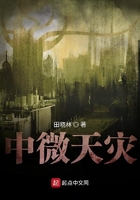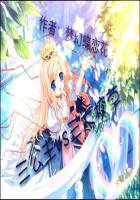"It's a pity," he sighed, after a brief silence. "O God, what a pity! Of course it is God's will; the world was not created by us, but yet it is a pity, brother. If a single tree withers away, or let us say a single cow dies, it makes one sorry, but what will it be, good man, if the whole world crumbles into dust? Such blessings, Lord Jesus! The sun, and the sky, andthe forest, and the rivers, and the creatures -- all these have been created, adapted, and adjusted to one another. Each has been put to its appointed task and knows its place. And all that must perish."A mournful smile gleamed on the shepherd's face, and his eyelids quivered.
"You say -- the world is perishing," said Meliton, pondering. "It may be that the end of the world is near at hand, but you can't judge by the birds. I don't think the birds can be taken as a sign.""Not the birds only," said the shepherd. "It's the wild beasts, too, and the cattle, and the bees, and the fish. . . . If you don't believe me ask the old people; every old man will tell you that the fish are not at all what they used to be. In the seas, in the lakes, and in the rivers, there are fewer fish from year to year. In our Pestchanka, I remember, pike used to be caught a yard long, and there were eel-pouts, and roach, and bream, and every fish had a presentable appearance; while nowadays, if you catch a wretched little pikelet or perch six inches long you have to be thankful. There are not any gudgeon even worth talking about. Every year it is worse and worse, and in a little while there will be no fish at all. And take the rivers now . . . the rivers are drying up, for sure.""It is true; they are drying up."
"To be sure, that's what I say. Every year they are shallower and shallower, and there are not the deep holes there used to be. And do you see the bushes yonder?" the old man asked, pointing to one side. "Beyond them is an old river-bed; it's called a backwater. In my father's time the Pestchanka flowed there, but now look; where have the evil spirits taken it to? It changes its course, and, mind you, it will go on changing till such time as it has dried up altogether. There used to be marshes and ponds beyond Kurgasovo, and where are they now? And what has become of the streams? Here in this very wood we used to have a stream flowing, and such a stream that the peasants used to set creels in it and caught pike; wild ducks used to spend the winter by it, and nowadays there is no water in it worth speaking of, even at the spring floods. Yes, brother, look where you will, things are bad everywhere. Everywhere!"A silence followed. Meliton sank into thought, with his eyes fixed onone spot. He wanted to think of some one part of nature as yet untouched by the all-embracing ruin. Spots of light glistened on the mist and the slanting streaks of rain as though on opaque glass, and immediately died away again -- it was the rising sun trying to break through the clouds and peep at the earth.
"Yes, the forests, too . . ." Meliton muttered.
"The forests, too," the shepherd repeated. "They cut them down, and they catch fire, and they wither away, and no new ones are growing. Whatever does grow up is cut down at once; one day it shoots up and the next it has been cut down -- and so on without end till nothing's left. I have kept the herds of the commune ever since the time of Freedom, good man; before the time of Freedom I was shepherd of the master's herds. I have watched them in this very spot, and I can't remember a summer day in all my life that I have not been here. And all the time I have been observing the works of God. I have looked at them in my time till I know them, and it is my opinion that all things growing are on the decline. Whether you take the rye, or the vegetables, or flowers of any sort, they are all going the same way.""But people have grown better," observed the bailiff. "In what way better?""Cleverer."














